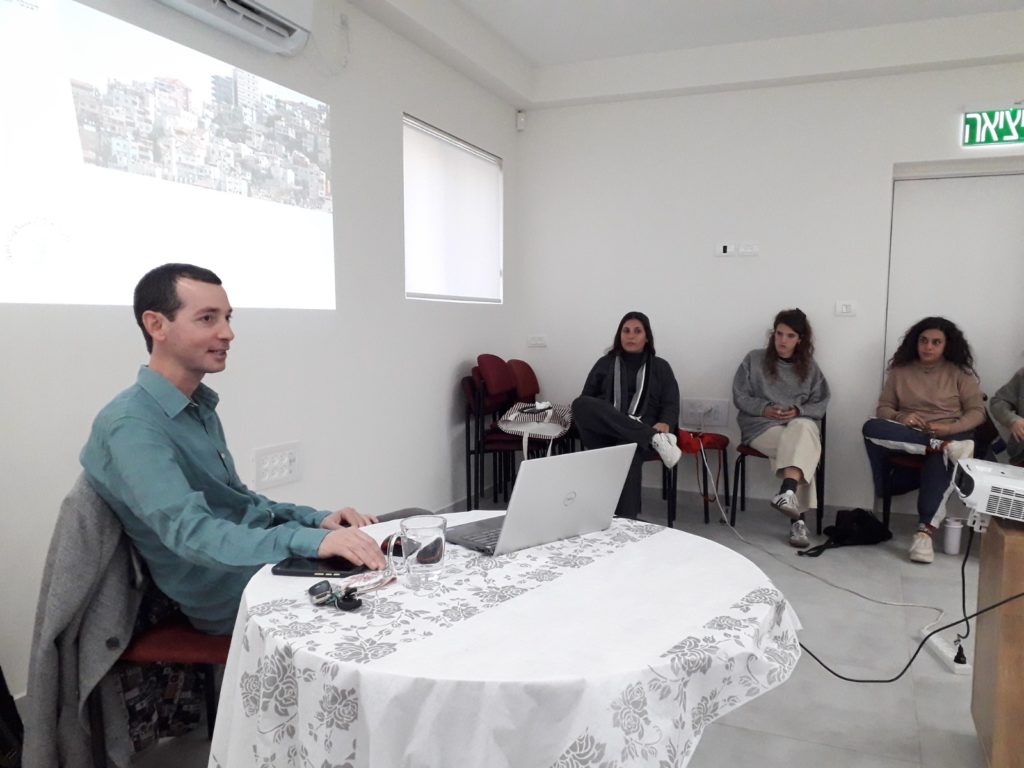Promoting Partnership and Equality through Policy Change | Ofer Dagan
Lecture: Promoting Partnership and Equality through Policy Change
By: Ofer Dagan, Co-Director of Sikkuy-Aufoq
The lecture was given as part of the Change Leaders in Mixed Cities course, Cycle 7, Session No. 5
Date: 22.12.23
In his lecture, Ofer provided a historical overview of the ways in which Israel’s policy towards the Arab society was shaped over the years. He explained how this policy fostered discrimination and social disparities, and elaborated on what is being done today – both by government ministries and by civil society – to promote policies that correct this historical inequality, and change it.
Ofer’s historical review outlined Israel’s approach to its Arab citizens starting with the founding of the state. Ofer highlighted the state’s policy shift from the initial security prism to the later economic prism, and what change such a shift brought on. The military rule – applied to all Arab villages within Israel’s territory until 1966 – created a policy of divide and rule within the Arab society in Israel. The aim was to integrate the Arabs into the economy in order to prevent their independent development as a separate society, and to make them dependent on the state. A decades-long policy of discrimination led to an explosion in October 2000. This resulted in the Or Committee, which made an unprecedented recommendation for the promotion of civil, economic and national rights of Arabs in Israel. Following the committee, the Arab society was included for the first time in Israel’s economic development plans, when Israel established the Economic Development Authority and joined the OECD. The state started to make plans for integration and promotion in the Arab society. However, the state’s policy only took into account the economic aspect, and ignored other aspects that it believed were not directly related to economic growth – such as welfare and education. Furthermore, during this time, the national and identity-based oppression was enhanced through laws such as the Nation State Law and the Kaminitz Law. Due to these circumstances we see the steady increase in serious crime.
Then Ofer pointed to the Corona crisis, which gravely affected the Arab society since their health systems were already neglected and discriminated against to begin with. Another crisis Ofer pointed to was that of May 2021, after all of the national development plans completely neglected the Arabs in the state’s nationally-mixed cities.
Sikkuy-Aufoq are working with the 2022 governmental plan to develop the Arab society and fight organized crime. Following 2022 they were able to witness some improvements. The plan is set to continue as even when the government is replaced, most of the clerks in the government offices do not change. The optimistic side of policy change is that the professional officials remain in office and do not change frequently, and they are not political appointees – they are committed to doing the work.

